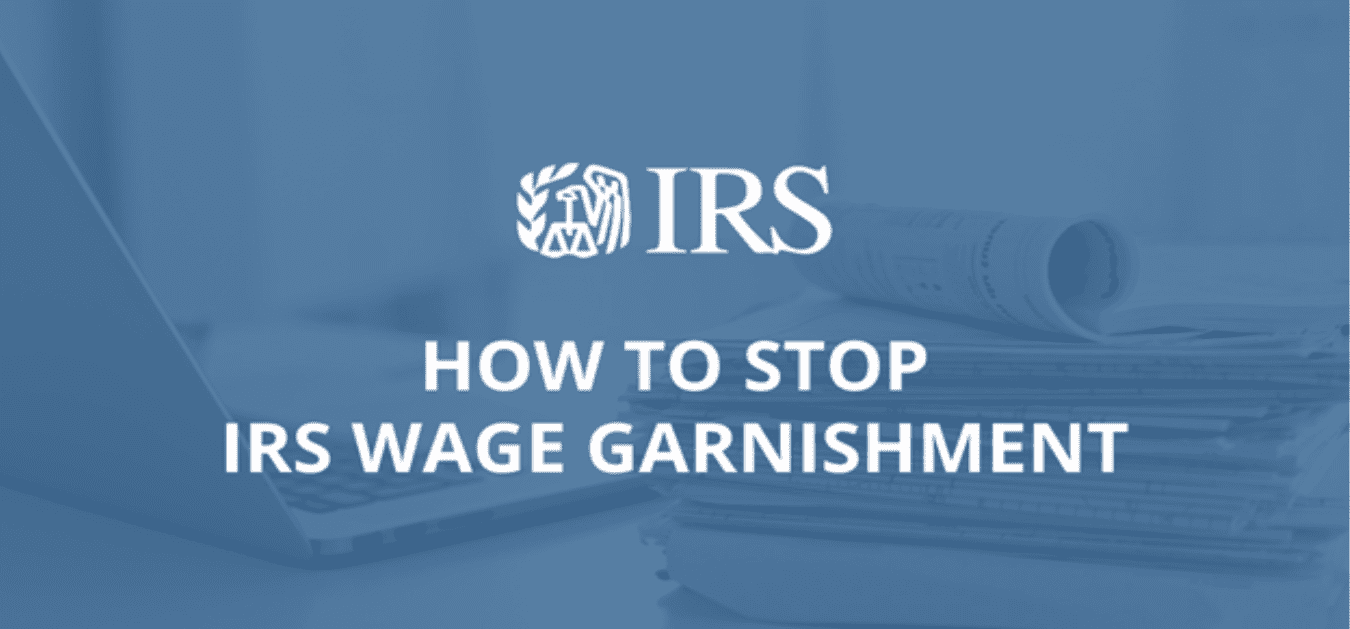

Finance
How To Stop Credit Offers
Modified: March 4, 2024
Learn how to stop credit offers and manage your finances effectively. Take control of your financial future and stop unwanted credit solicitations.
(Many of the links in this article redirect to a specific reviewed product. Your purchase of these products through affiliate links helps to generate commission for LiveWell, at no extra cost. Learn more)
Table of Contents
- Introduction
- Understanding Credit Offers
- The Negative Effects of Credit Offers
- Benefits of Stopping Credit Offers
- Ways to Stop Credit Offers
- Opting Out of Pre-Screened Offers
- Placing a Security Freeze on Your Credit Reports
- Using Third-Party Services to Stop Credit Offers
- Monitoring and Reporting Unauthorized Credit Offers
- Conclusion
Introduction
Credit offers can be a double-edged sword. On one hand, they provide access to financial products and services that can be beneficial in certain situations. On the other hand, they can inundate your mailbox, email inbox, and phone with a barrage of unwanted solicitations. The constant bombardment of credit offers can lead to financial stress and a sense of overwhelm.
In this article, we will explore the negative effects of credit offers and discuss the benefits of stopping them. Additionally, we will provide you with effective strategies to put an end to these offers and regain control of your financial landscape.
Understanding the nature of credit offers is crucial in evaluating their impact. Banks, credit card companies, and even lenders use various marketing tactics to attract potential customers. These offers often promise enticing rewards, low interest rates, and other perks to entice consumers to sign up for their products or services.
However, it’s essential to recognize that credit offers are ultimately business strategies aimed at increasing profits for the companies that extend credit. While some offers may indeed be advantageous, many are designed to maximize the financial institution’s revenue.
Furthermore, the constant influx of credit offers can have negative effects on both your financial well-being and personal peace of mind. It can lead to financial impulsiveness, encouraging you to take on more debt than you can handle. It can also create a false sense of urgency, pressuring you to make quick decisions without fully considering the consequences.
Fortunately, there are numerous benefits to stopping credit offers. By opting out of these solicitations, you can reduce your exposure to potential scams and protect your personal information from falling into the wrong hands. Additionally, eliminating unwanted credit offers can help you declutter your mailbox and inbox, reducing the stress associated with sifting through a sea of promotional materials.
Moreover, by taking control of the credit offer pipeline, you can better focus on your financial goals and make informed decisions about credit and borrowing. Instead of being influenced by enticing offers, you can proactively seek out the best financial products and services that align with your needs and long-term objectives.
In the following sections, we will delve into various ways to stop credit offers and regain control of your financial well-being.
Understanding Credit Offers
Credit offers come in various forms: pre-screened credit card offers, loan offers, balance transfer offers, and more. These offers are generated by financial institutions based on certain criteria, such as credit scores, income levels, and other factors that indicate an individual’s eligibility for credit.
It’s important to note that credit offers are not necessarily tailored to your specific financial situation or needs. Financial institutions send these offers to a wide range of individuals in the hopes of gaining new customers. They often use data from credit bureaus and other sources to compile a list of potential recipients.
Pre-screened credit card offers, in particular, are a common type of credit offer. These offers are based on a soft inquiry into your credit history, meaning that the financial institution has evaluated your credit profile without your explicit permission. These offers usually come with introductory interest rates, rewards programs, and other appealing features designed to entice consumers to apply for a new credit card.
It’s important to differentiate between pre-screened offers and pre-approved offers. While pre-screened offers indicate that you meet certain criteria for credit, pre-approved offers suggest a higher level of likelihood for credit approval. However, even pre-approved offers are not a guarantee of credit. The final decision depends on a thorough evaluation of your application.
Understanding the nature of credit offers and how they are generated is crucial in evaluating their legitimacy and determining whether they align with your financial goals. While some offers may seem attractive on the surface, it is essential to carefully read the terms and conditions and assess their long-term implications.
Additionally, it’s important to recognize that credit offers are not the only option available to access credit. You can also proactively research and apply for credit cards, loans, and other financial products that align with your specific needs and preferences.
In the next sections, we will discuss the negative effects of credit offers and the benefits of stopping them. We will also provide you with effective strategies to put an end to these offers and regain control of your financial landscape.
The Negative Effects of Credit Offers
While credit offers may seem appealing at first glance, they can have several negative effects on your financial well-being and overall peace of mind.
1. Financial Impulsiveness: The constant influx of credit offers can tempt you into making impulsive financial decisions. The enticing rewards, low interest rates, and other perks may encourage you to take on new credit or make unnecessary purchases, leading to increased debt and potential financial strain.
2. Increased Debt Levels: Accepting multiple credit offers can result in accumulating more debt than you can handle. Each credit card or loan comes with its own obligations and payment schedules, adding to your monthly financial burden. This can lead to difficulty in making timely payments and potentially damaging your credit score.
3. Risk of Identity Theft: Fraudulent credit offers could be a red flag for potential identity theft. Scammers and fraudsters often use deceptive credit offers to gather personal information from unsuspecting individuals. This information can then be used to open fraudulent accounts or commit other forms of financial fraud.
4. Financial Stress: The constant bombardment of credit offers can create stress and anxiety. Sorting through a sea of promotional materials can be time-consuming and overwhelming. This can distract you from focusing on your financial goals and make it difficult to differentiate between legitimate offers and potential scams.
5. Inaccurate Perceptions: Credit offers often emphasize the benefits and rewards associated with their products or services, downplaying the potential costs and risks. It’s important to approach these offers with a critical eye and evaluate their long-term implications. Failure to do so can result in unrealistic expectations and disappointment in the future.
By understanding the negative effects of credit offers, you can better navigate the financial landscape and make informed decisions about your credit and borrowing habits. In the next section, we will explore the benefits of stopping credit offers and regaining control over your financial journey.
Benefits of Stopping Credit Offers
Putting a stop to credit offers can have numerous advantages for your financial well-being and overall peace of mind. Here are some key benefits of stopping credit offers:
1. Reduced Exposure to Scams: By opting out of credit offers, you can significantly reduce your exposure to potential scams and fraudulent activities. Many scammers use deceptive credit offers to solicit personal information or lure individuals into financial traps. By eliminating these offers, you can better protect yourself from falling victim to identity theft or financial fraud.
2. Protection of Personal Information: Credit offers typically require you to provide personal information to apply for a credit card or loan. By stopping credit offers, you can limit the amount of personal data you share with financial institutions, reducing the risk of your information falling into the wrong hands. This can enhance your overall privacy and security.
3. Decluttered Mailbox and Inbox: The constant influx of credit offers can clutter your mailbox and inbox, making it difficult to sort through important correspondence. By opting out of credit offers, you can significantly reduce the amount of unwanted promotional materials, allowing you to focus on the messages that truly matter.
4. Improved Financial Decision-Making: Without the constant influence of credit offers, you can make more deliberate and informed decisions about credit and borrowing. Instead of being swayed by enticing offers and promotional gimmicks, you can take the time to research and compare different financial products to find the ones that best suit your needs and goals.
5. Reduced Financial Stress: The barrage of credit offers can contribute to financial stress and anxiety. Constantly evaluating and deciding whether to accept or reject offers can be overwhelming. By stopping credit offers, you can alleviate this stress and create a more peaceful financial environment for yourself.
6. Focus on Long-Term Financial Goals: With credit offers out of the picture, you can shift your attention toward your long-term financial goals. Whether it’s saving for retirement, paying down debt, or building an emergency fund, removing the distractions of credit offers allows you to concentrate on strategies and actions that align with your financial aspirations.
Remember, stopping credit offers does not mean you cannot seek credit when needed. It simply means you have more control over the process and can proactively seek out the best financial options instead of being bombarded with unsolicited offers.
In the next sections, we will discuss effective strategies to stop credit offers and regain control of your financial landscape.
Ways to Stop Credit Offers
If you’re tired of the avalanche of credit offers filling your mailbox and inbox, there are several effective strategies you can implement to put an end to them. Here are some ways to stop credit offers:
- Opting Out of Pre-Screened Offers: You can opt out of pre-screened credit card offers by visiting the official website of the three major credit bureaus – Equifax, Experian, and TransUnion. These credit bureaus offer the option to opt out of pre-screened offers, which will remove your name from the list that creditors use to send such offers.
- Placing a Security Freeze on Your Credit Reports: Another effective method to stop credit offers is to place a security freeze on your credit reports. This prevents credit reporting agencies from releasing your credit information to potential creditors. To do this, you can contact each credit bureau individually and request a security freeze.
- Using Third-Party Services to Stop Credit Offers: There are third-party services available that can help you stop credit offers. These services typically involve registering your contact information with their database, which is then used to suppress credit offers from reaching you. Research reputable third-party services that specialize in stopping credit offers and choose one that suits your needs.
- Monitoring and Reporting Unauthorized Credit Offers: Regularly monitoring your credit reports is crucial in identifying any unauthorized credit offers or accounts opened in your name. If you come across any suspicious activity, report it immediately to the appropriate authorities and credit bureaus to prevent further harm.
Implementing one or more of these strategies can significantly reduce the influx of credit offers, giving you more control over your financial landscape. However, it’s important to note that it may take some time for the effects to fully kick in, as it can take a few months for your opt-out requests to be processed and for the suppression of credit offers to take effect.
Additionally, it’s important to periodically review and update your preferences with the credit bureaus and other relevant entities to ensure that you continue to receive the level of credit offers that aligns with your financial goals and needs.
By taking proactive steps to stop credit offers, you can minimize the distractions and stress associated with constant solicitations and focus on making thoughtful financial decisions that align with your long-term objectives.
In the next section, we will dive deeper into the process of opting out of pre-screened credit card offers, providing you with step-by-step instructions to follow.
Opting Out of Pre-Screened Offers
If you want to put an end to the pre-screened credit card offers that flood your mailbox, there is a simple and effective solution: opting out. By opting out, you can remove your name from the list that creditors use to send pre-screened offers. Here is a step-by-step guide on how to opt out of pre-screened offers:
- Visit the Credit Reporting Agency Websites: Start by visiting the official websites of the three major credit reporting agencies: Equifax, Experian, and TransUnion.
- Navigate to the Opt-Out Page: Look for the “Opt-Out” section on each credit reporting agency’s website. It is usually found under the “Consumer” or “Personal Credit” section.
- Provide Required Information: You will need to provide certain information to verify your identity and proceed with the opt-out process. This may include your name, social security number, date of birth, and address.
- Choose Opt-Out Preferences: Once you have provided the required information, you will have the opportunity to choose your opt-out preferences. This may include opting out for a certain period or permanently. Make sure to carefully review the options and select the one that best suits your needs.
- Submit Your Opt-Out Request: After selecting your opt-out preferences, submit your request. Note that you may need to repeat this process for each of the three credit reporting agencies.
- Keep a Record: It is advisable to keep a record of your opt-out requests, including confirmation numbers or any other relevant information provided by the credit reporting agencies. This can serve as evidence in case any issues or discrepancies arise in the future.
It’s important to note that it may take a few months for your opt-out request to be processed and for the suppression of pre-screened credit offers to take effect. During this time, you may still receive some offers. However, the frequency should gradually decrease over time.
It’s also worth mentioning that opting out of pre-screened offers does not impact your ability to apply for credit when needed. It simply stops the unsolicited offers generated based on your credit profile.
By opting out of pre-screened credit card offers, you can experience a significant reduction in the amount of promotional materials you receive, allowing you to focus on the mail and emails that truly matter to you.
In the next section, we will discuss how to place a security freeze on your credit reports as another effective method to stop credit offers.
Placing a Security Freeze on Your Credit Reports
If you want to take stronger measures to stop credit offers and protect your personal information, you can consider placing a security freeze on your credit reports. A security freeze restricts access to your credit information, making it difficult for potential creditors to view your credit history and extend credit in your name. Here’s how you can place a security freeze on your credit reports:
- Contact Each Credit Reporting Agency: Start by contacting each of the three major credit reporting agencies – Equifax, Experian, and TransUnion. You can usually place a security freeze online, by phone, or by mail.
- Provide Required Information: The credit reporting agencies will require certain information to place a security freeze, including your name, social security number, date of birth, and address. Make sure to have this information readily available when initiating the process.
- Choose Your Freeze Options: You will have the option to choose the specifics of your security freeze. This may include selecting a personal identification number (PIN) that you will use to temporarily lift or remove the freeze when necessary.
- Submit Your Request: After providing the necessary information and selecting your freeze options, submit your request to place a security freeze on your credit reports. Note that you may need to repeat this process for each credit reporting agency.
- Keep a Record: It is important to keep a record of your security freeze, including any confirmation numbers or other relevant information provided by the credit reporting agencies. This will be helpful if you need to make any changes or lift the freeze in the future.
Once you have successfully placed a security freeze on your credit reports, potential creditors will not be able to access your credit information without your permission. This adds an extra layer of protection, making it more challenging for unauthorized individuals to open fraudulent accounts or apply for credit in your name.
It’s important to note that placing a security freeze on your credit reports may have some implications for your own access to credit. You will need to temporarily lift or remove the freeze if you want to apply for new credit or open new accounts. This can usually be done by contacting the credit reporting agencies and providing them with the necessary information.
By placing a security freeze on your credit reports, you can have greater control over who can access your credit information, reducing the likelihood of receiving unsolicited credit offers and protecting yourself from potential identity theft or fraud.
In the following section, we will explore the option of using third-party services to stop credit offers and further enhance your protection against unwanted solicitations.
Using Third-Party Services to Stop Credit Offers
If you’re looking for additional assistance in stopping credit offers, you can explore the option of using third-party services that specialize in managing and stopping unwanted solicitations. These services work by registering your contact information with their database, which is then used to suppress credit offers from reaching you. Here’s how you can use third-party services to stop credit offers:
- Research Reputable Third-Party Services: Start by researching and identifying reputable third-party services that focus on stopping credit offers. Look for well-established companies with positive reviews and a track record of delivering effective results.
- Choose a Service: Evaluate different services based on their offerings, fees (if any), and the level of control they provide. Select a service that aligns with your needs and preferences.
- Register with the Service: Once you have chosen a service, follow their registration process. Typically, this involves providing your contact information and agreeing to the terms and conditions of the service.
- Opt-Out from Credit Offers: The third-party service will use your information to initiate the opt-out process on your behalf. They will communicate with credit bureaus and other relevant entities to suppress credit offers from reaching you.
- Monitor and Update: Regularly monitor your account with the third-party service to ensure that your contact information is up to date and that the suppression of credit offers is effective. Update any changes to your personal information to ensure continued protection.
Using third-party services can provide an additional layer of convenience and expertise in stopping credit offers. They take on the responsibility of managing the opt-out process, reducing the administrative burden on your end.
It’s important to note that while third-party services can be effective in suppressing credit offers, they may not completely eliminate all solicitations. Some offers may still find their way through. Therefore, it’s essential to remain vigilant and report any unauthorized or suspicious credit offers to the appropriate authorities.
Consider researching and comparing different third-party services to find the one that best suits your needs. Read customer reviews and testimonials to gain insight into the effectiveness and reliability of the service. Remember, these services can play a supporting role in your overall strategy to stop credit offers, but they are not foolproof solutions.
In the next section, we will discuss the importance of monitoring and reporting unauthorized credit offers to further protect yourself from potential scam attempts.
Monitoring and Reporting Unauthorized Credit Offers
Even with proactive measures in place to stop credit offers, it’s crucial to remain vigilant and monitor your credit reports for any unauthorized activity. Monitoring your credit reports allows you to identify and report any suspicious or unauthorized credit offers, protecting yourself from potential scam attempts. Here’s why monitoring and reporting unauthorized credit offers is important:
1. Early Detection of Unauthorized Activity: Regularly monitoring your credit reports enables you to identify any unauthorized credit offers or accounts opened in your name. By detecting these signs early on, you can take immediate action to prevent further harm and minimize potential financial damage.
2. Protection against Identity Theft: Unauthorized credit offers can sometimes be an indication of identity theft. Scammers and fraudsters may use your personal information obtained through various means to open credit accounts in your name. By monitoring your credit reports, you can identify any red flags that may indicate identity theft and take necessary steps to safeguard your financial well-being.
3. Reporting to Authorities and Credit Bureaus: If you come across unauthorized credit offers or any suspicious activity on your credit reports, it’s important to report it promptly to the appropriate authorities and credit bureaus. This helps in initiating investigations, resolving issues, and preventing further fraudulent activities.
4. Preserving Your Credit Score and Reputation: Unauthorized credit offers can negatively impact your credit score and damage your reputation as a responsible borrower. By monitoring and reporting these offers, you can mitigate the potential harm they may cause and preserve your creditworthiness.
To effectively monitor your credit reports, you can take advantage of free annual credit reports provided by each of the three major credit reporting agencies – Equifax, Experian, and TransUnion. These reports allow you to review your credit history, accounts, and inquiries made in your name.
If you notice any unauthorized credit offers or suspicious activity on your credit reports, follow these steps:
- Contact the Creditor: Reach out to the creditor associated with the unauthorized credit offer and explain that the offer was not authorized. Ask for clarification and request that they close the account if it was opened fraudulently.
- Notify the Credit Bureaus: Report the unauthorized credit offer to the credit bureaus by filing a dispute. Provide them with any evidence or documentation supporting your claim. The credit bureaus are responsible for investigating the dispute and removing any inaccurate information from your credit reports.
- File a Complaint: If you believe you have been a victim of fraudulent activity, file a complaint with the Federal Trade Commission (FTC) and your local law enforcement agencies. This helps in initiating investigations and taking legal action against the perpetrators.
By actively monitoring your credit reports and reporting any unauthorized credit offers, you can take control of your financial security and minimize the risks associated with identity theft and financial fraud.
In the next section, we will conclude the article and summarize the key points discussed.
Conclusion
Credit offers can inundate our lives, filling our mailboxes, inboxes, and phone calls with unwanted solicitations. However, by understanding the nature of credit offers and taking proactive steps to stop them, we can regain control over our financial landscape and protect ourselves from potential scams and financial stress.
In this article, we discussed the negative effects of credit offers, including financial impulsiveness, increased debt levels, the risk of identity theft, and overall financial stress. We also explored the benefits of stopping credit offers, such as reduced exposure to scams, protection of personal information, decluttered mailboxes and inboxes, improved financial decision-making, reduced financial stress, and a greater focus on long-term financial goals.
We provided various strategies to stop credit offers, including opting out of pre-screened offers through the credit reporting agencies, placing a security freeze on your credit reports, using third-party services that specialize in stopping credit offers, and monitoring and reporting unauthorized credit offers.
Opting out of pre-screened credit card offers allows you to remove your name from the list that creditors use to send such offers. Placing a security freeze on your credit reports adds an extra layer of protection by restricting access to your credit information. Third-party services can assist you in managing and stopping unwanted credit offers. Monitoring your credit reports and reporting unauthorized credit offers helps detect and prevent fraud and identity theft.
It’s important to note that while these strategies can significantly reduce the influx of credit offers, some offers may still manage to reach you. Therefore, remaining vigilant and reporting any unauthorized or suspicious credit offers to the appropriate authorities and credit bureaus is essential.
By taking control of credit offers, we can focus on making informed financial decisions, protecting our personal information, and working towards our long-term financial goals. Remember, the power lies with us to shape our financial future and create a more peaceful and secure financial environment.
So, take the necessary steps to stop credit offers and enjoy a clutter-free mailbox, a sense of control over your financial landscape, and the peace of mind that comes with knowing you’re protecting yourself from potential scams.














